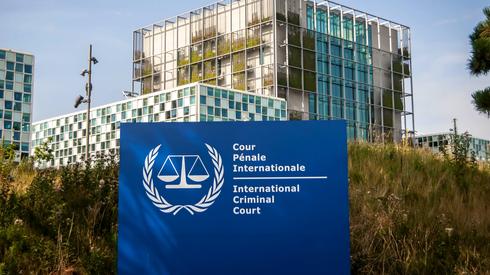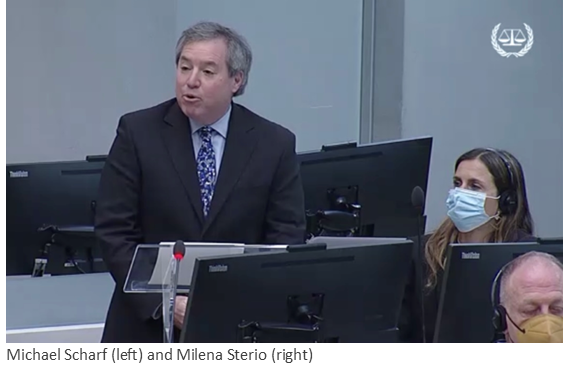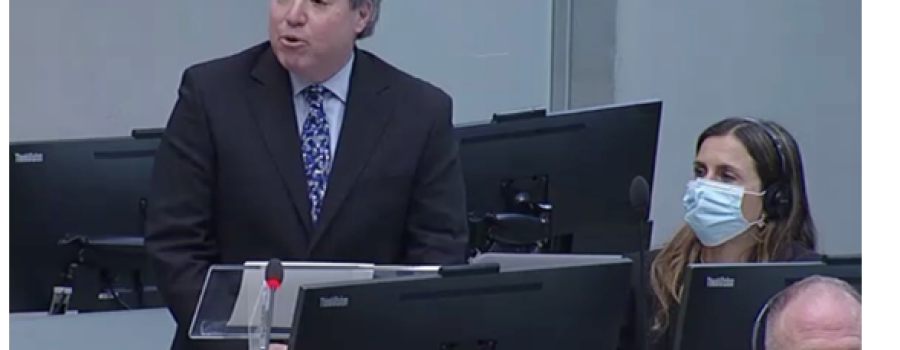ABILA Leadership Makes an Impact at the International Criminal Court

ABILA Co-Chair of the International Humanitarian Law Committee Gabor Rona submitted an amicus brief to the ICC in November 2019 responding to the Prosecutor’s request for an investigation into international crimes arising out of Afghanistan. A Pre-Trial Chamber (PTC) had rejected the prosecutor’s request to investigate CIA war crimes arising from secret detention and torture of detainees at “black sites” in Poland, a State Party to the Rome Statute. The PTC held that those events lacked sufficient nexus to the armed conflict in Afghanistan. In his brief, Rona argued to the Appellate Chamber that the PTC misconstrued the Rome Statute in two respects by incorrectly concluding that: (1) Common Article 3 (CA3) applies only to purely internal non-international armed conflicts and (2) the Elements of Crimes requires that the conduct must occur “in the context of” the non-international armed conflict and must be associated with it.
To his first point, Rona presented five examples demonstrating that CA3 is not limited to only conflicts occurring “on the territory of one of the State Parties.” First, he referred to the “scope of application” language of Addition Protocol II (AP II), which is meant to supplement CA3. Rona noted that AP II Article I applies to armed conflicts taking place on the territory of “a” High Contracting Party, not “one” High Contracting Party. Next, he stated the ICRC position that the CA3 phrase “on the territory of one of the High Contracting parties” is moot as it was meant to distinguish States that were party to the Geneva Conventions from those that were not—a distinction that no longer exists. Third, Rona referred to the U.S. Supreme Court case Hamdan v. Rumsfeld, which ruled that an alleged Al Qaeda member was protected by CA3, as it provides a floor of protections to all armed-conflict detainees. Then, he stated that the ICJ has opined that CA3 applies to all armed conflicts. Lastly, Rona referred to the U.N. Security Council’s acknowledgment of CA3’s extraterritorial reach by its application of the Rwanda Tribunal Statute to CA3 violations committed in States neighboring Rwanda.
On his second point, Rona reflected on his negotiations on the Elements of Crimes as a Legal Advisor in the Legal Division of the ICRC. The drafters used such language to clarify that because conduct does occur on the territory of a State experiencing a non-international armed conflict, it is not necessarily “associated with” the armed conflict. His brief stated that acts outside the territory of hostilities are not per se outside the context of the armed conflict.
Citing Rona’s amicus brief, the Appeals Chamber issued a judgment in March 2020, finding that the Prosecutor is authorized to commence an investigation “in relation to alleged crimes committed on the territory of Afghanistan in the period since 1 May 2003, as well as other alleged crimes that have a nexus to the armed conflict in Afghanistan and are sufficiently linked to the situation and were committed on the territory of other State Parties in the period since 1 July 2002.”
– – – – – – – – – – – – – – – – – – – – – – – – – – – – – – – – – – – – –

ABILA Vice-President Milena Sterio, ABILA Co-Director of Studies Jennifer Trahan, and ABILA President-elect Michael Scharf, together with PILPG, submitted an amicus brief to the ICC Appeals Chamber on the insanity defense in the Ongwen case. The brief argues that the provisions of the ICC statute, read in the context of the statute’s negotiating history, should be interpreted as requiring the defense to produce evidence supporting the insanity defense. However, it should then be interpreted thereafter to require the prosecution to prove that the evidence adduced regarding mental disease or defect does not raise a reasonable doubt as to the guilt of the accused. On February 14, 2022, Sterio and Scharf presented their arguments before the Appeals Chamber.




